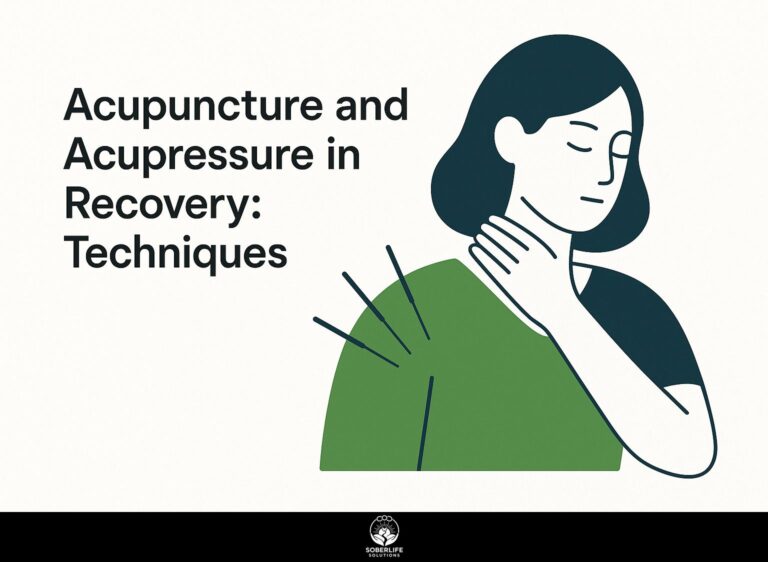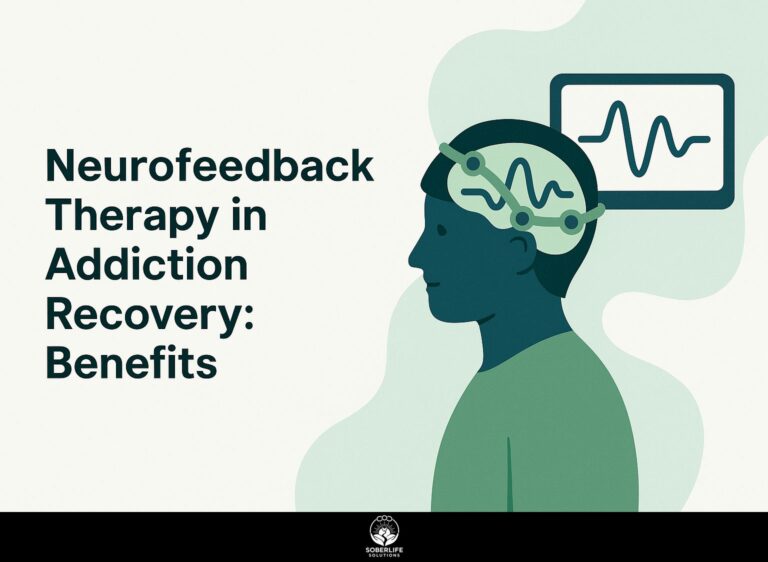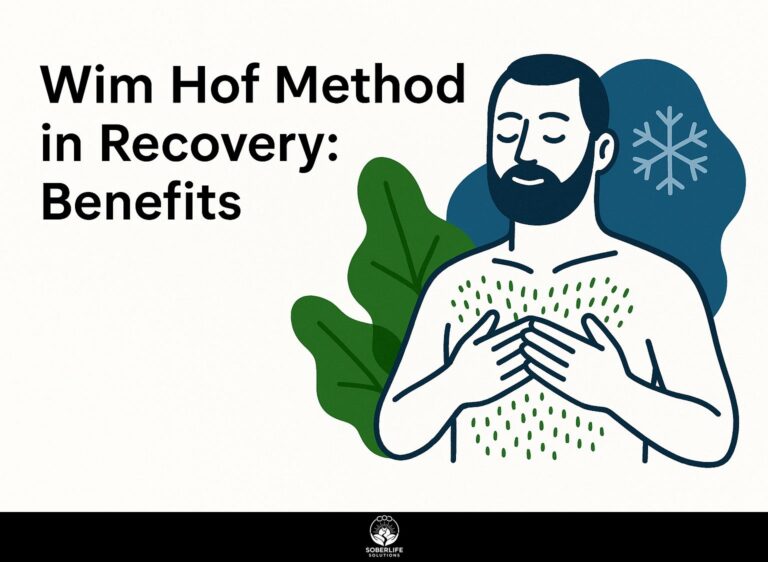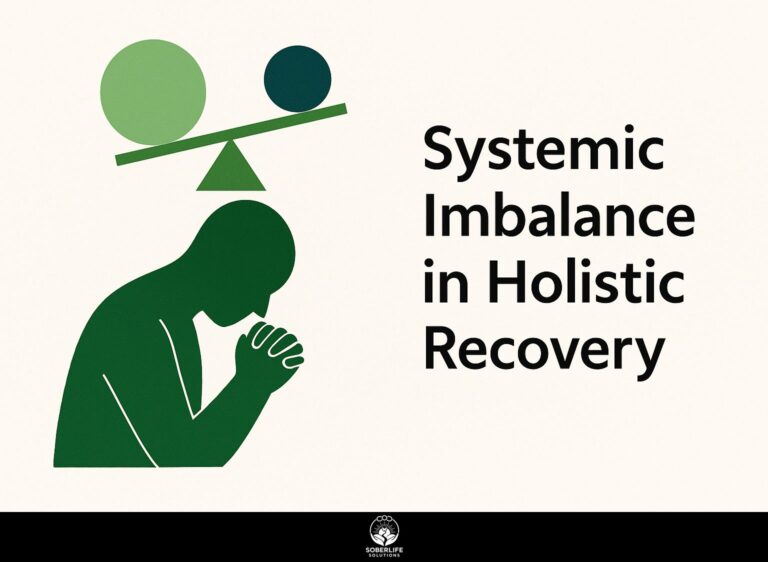Whole-Self Care in Substance Abuse Treatment
In the path to lasting recovery from substance abuse, caring for the whole person is an important part of the healing process. Organizations like Driftwood Recovery and information from the Centers for Disease Control and Prevention (CDC) highlight this complete approach, which supports well-being by meeting physical, emotional, and social needs. This article discusses how a whole-person method includes self-care in treatment, providing useful strategies for lasting recovery and a better quality of life.
Key Takeaways:
- Whole-self care includes looking after your physical, mental, emotional, and social health, which is essential for successful substance abuse treatment.
- Personalized care methods and collaboration in treatment provide a well-rounded approach to health, focusing on each person’s needs for better recovery outcomes.
- Overcoming stigma and resource limitations is essential for implementing whole-self care successfully in substance abuse programs.
Definition and Importance
Whole-self care involves looking after all parts of your well-being, such as physical health, emotional stability, and relationships with others, which are essential for healing and recovery.
Incorporating whole-self care into recovery involves practical steps like regular exercise, which can relieve stress and improve mood.
Practicing mindfulness techniques like meditation or yoga strengthens emotional resilience. A comprehensive overview of these strategies can be found in a recent article published in Tandfonline, which discusses the importance of a whole person approach. For those looking to deepen their mindfulness practice, exploring various [recovery techniques that include meditation](https://soberlifesolutions.com/recovery-techniques-meditation/) can be particularly beneficial.
Creating a support network through groups or community events helps people form social connections that are important for ongoing recovery.
Tools like journaling apps can help track emotions and progress, while fitness trackers encourage maintaining an active lifestyle.
Together, these actions create a balanced approach that supports individuals in facing the challenges of substance misuse.
Overview of Substance Abuse Treatment
Substance abuse treatment has changed from only using medical methods to including approaches that help with emotional and mental health along with physical recovery.
Current trends emphasize the importance of whole-self care, integrating practices like mindfulness, yoga, and nutritional counseling into standard treatment protocols. According to a recent report by the American Psychological Association, psychologists are innovating to tackle substance use by incorporating these holistic approaches.
Programs now frequently offer mindfulness meditation sessions to improve self-awareness and manage emotions. Activities like yoga contribute to reducing stress and promoting overall health. For a closer look at how psychologists employ various techniques in recovery, it’s clear that combining these methods enhances treatment outcomes.
Nutritional Therapy looks at how what we eat influences mental health. It encourages a balanced diet rich in necessary nutrients to support healing. This approach focuses on helping the whole person, not just treating substance use.
Components of Whole-Self Care
Whole-self care involves various aspects that come together to promote healing and improve overall well-being.
Physical Health
Physical health is foundational to whole-self care, as maintaining an active lifestyle and managing chronic pain can significantly affect recovery outcomes.
To improve your physical health, try to get at least 150 minutes of moderate exercise each week. You can spread this out into shorter sessions, like 30 minutes a day, five days a week.
Do strength training two times a week to build muscle and keep your joints stable. Use apps like MyFitnessPal to log your meals and workouts, which can help you choose better foods. Additionally, consider incorporating insights from our article on Nutrition and Physical Well-being in Women’s Recovery to enhance your meal choices.
Consider yoga or pilates to improve flexibility and reduce stress, both of which are beneficial for chronic pain management.
Mental Health
Mental health programs, such as therapy and mindfulness techniques, are important for treating mental health issues and building emotional strength during recovery.
Bringing together different methods can greatly improve mental health.
For example, mindfulness meditation, accessible through apps like Headspace and Calm, encourages stress reduction and emotional regulation. You can also explore various recovery techniques that include mindfulness and meditation for a more comprehensive approach.
Evidence-based approaches like cognitive-behavioral therapy (CBT) can also be beneficial; many find resources such as the app Woebot helpful for self-guided CBT exercises.
Joining peer support groups, whether in person or online, builds connections and allows people to share their experiences, which can be important for those who feel alone.
These practices work together to build a strong foundation for emotional well-being.
Emotional Well-being
Emotional health means developing self-awareness and building strong relationships with others, which are important for preventing setbacks during recovery.
To improve your emotional health, try adding journaling to your daily routine. Take 10-15 minutes each morning to think about your feelings and experiences; this can help you become more aware of yourself and gain clarity.
Joining community support groups like those offered by Driftwood Recovery creates an opportunity to share experiences and thoughts. Connecting with others who relate to your path encourages support and responsibility.
Use mindfulness apps like Headspace or Calm that provide guided meditations to help with stress and anxiety, supporting your emotional well-being.
Social Connections
Social connections are important for recovery. Studies show that people who interact with supportive communities have lower chances of relapsing and better results. Research published in ScienceDirect highlights the crucial role of social support in treatment outcomes.
Attending community meetings allows you to connect with others. For example, local support groups like Alcoholics Anonymous or SMART Recovery offer help and a chance to share personal stories.
The CDC reports that involvement in such networks can lead to a 50% increase in recovery success rates. Consider enrolling in peer support programs, which provide one-on-one mentorship and guidance.
Using tools like Meetup to find local events can help you grow your social circle, forming a group that promotes accountability and support.
Integrating Whole-Self Care in Treatment Plans
Including whole-self care methods in treatment plans provides a complete approach that meets the various needs of individuals in recovery.
Personalized Care Approaches
Care methods that focus on individuals understand their specific needs and highlight the importance of specific treatments for successful recovery.
These approaches often blend different therapies, lifestyle adjustments, and community support.
For instance, a successful recovery program might integrate cognitive-behavioral therapy (CBT), nutritional counseling, and peer support groups.
One case study highlighted a program where participants received weekly individual therapy sessions alongside group activities, significantly enhancing their social networks and coping strategies.
By keeping track of progress, professionals can change plans as needed to support everyone, helping to achieve a successful recovery.
Collaborative Treatment Teams
Treatment groups consisting of healthcare workers and peer supporters improve care by providing assistance in every aspect of recovery.
To get the most out of a teamwork approach in treatment, it’s important to clearly outline each person’s role.
Therapists work on mental health and ways to cope, using techniques like cognitive-behavioral therapy (CBT) that fit each person’s situation. Doctors take care of physical health by managing medications and suggesting changes to daily habits.
Peer supporters share their experiences and provide emotional support, helping connect clinical care with daily life challenges.
Regular team meetings help everyone work together, creating a recovery plan that focuses on physical health and emotional support.
Challenges in Implementing Whole-Self Care
Even with its benefits, applying whole-self care faces many challenges that can affect its integration into regular treatment methods. Understanding the impact of these challenges is crucial, especially as it relates to the potential for physical decline in addiction. For insights on managing these issues, consider exploring our holistic strategies for addressing physical decline in addiction.
Stigma and Misunderstanding
Negative feelings about substance use disorders often result in confusion that can hinder successful recovery and the acceptance of complete care methods.
Community outreach programs can help lessen this stigma. For instance, organizations like Faces & Voices of Recovery run campaigns that tell personal stories, making it easier for people to connect with those affected.
Local workshops from SMART Recovery support families and individuals in understanding substance use disorders. Offering educational materials in schools can help clarify misunderstandings from the start.
Training healthcare providers to prioritize empathy can improve how the medical community handles these issues.
Resource Limitations
Limited resources in healthcare can hinder the ability to provide complete care, impacting the availability of support systems.
To address these challenges, healthcare facilities can consider community-based solutions.
For example, partnering with local organizations can provide mental health workshops at little to no cost. Establishing a volunteer network can help facilitate peer support programs, enabling patients to connect with others facing similar issues.
Using online platforms for remote support groups increases access and allows people to participate flexibly without needing a lot of resources. These methods improve patient care and build a sense of community, effectively using what is available.
Measuring Success in Whole-Self Care
To determine how well whole-self care works, we use clear measurements and patient feedback to evaluate the success of treatment methods.
Outcome Metrics
Key outcome metrics include reductions in relapse rates and improvements in quality of life, measurable through standardized assessments and self-reporting tools.
To collect and examine these measurements, you might use the Quality of Life Scale (QLS) for thorough evaluations and the Beck Anxiety Inventory (BAI) for data on anxiety-related relapses.
Administer these assessments at regular intervals-such as bi-weekly or monthly-to track progress over time. Using a digital platform like Qualtrics can facilitate real-time data collection, allowing for immediate adjustments to treatment plans.
This clear method tracks results and improves communication between healthcare workers and patients.
Patient Feedback and Engagement
Getting regular feedback from patients is important for improving care methods. It encourages involvement and helps make ongoing improvements in treatment plans.
To collect information, you can use tools like SurveyMonkey for surveys or Zoom for interviews. Both of these platforms make it simple to gather and analyze data.
You can create surveys that focus on specific care topics and send them by email or during visits. Follow-up interviews on Zoom can help you gather more detailed information.
Hold these meetings every three months and adjust care plans based on the feedback you get. This routine improves care and demonstrates to patients that their views matter in influencing their treatment.
Future Paths in Substance Abuse Treatment
Plans for substance abuse treatment will focus on making it easier to access full care options and encourage collaboration among various health professionals in healthcare systems.
Healthcare providers can use online health tools, like teletherapy platforms such as Talkspace or BetterHelp. These services enable people to reach licensed professionals at their convenience.
Using apps like Sober Grid helps people connect with others and track their recovery, creating a sense of responsibility. The WHO states that using these tools alongside regular therapy can increase patient involvement and lead to better results, making the treatment process more complete and connected.
Frequently Asked Questions
What is Whole-Self Care in Substance Abuse Treatment?
Whole-Self Care in Substance Abuse Treatment means taking care of all parts of a person’s health: physical, emotional, mental, and spiritual. This approach highlights the need to support the whole individual instead of just treating the addiction, promoting lasting recovery and overall health.
How does Whole-Self Care improve recovery in substance abuse treatment?
Whole-Self Care helps people recover from substance abuse by encouraging healing in all areas of life. By including activities like mindfulness, proper nutrition, exercise, and emotional support, individuals can strengthen their ability to cope, make healthier choices, and maintain their recovery while lowering the chances of going back to old habits.
What strategies can be included in a Whole-Self Care plan for substance abuse treatment?
A plan for treating substance abuse can involve several approaches, including regular exercise, healthy meals, mindfulness activities like meditation or yoga, joining support groups, and engaging in creative hobbies. Therapy or counseling sessions can also offer important emotional support during recovery.
Why is emotional health important in Whole-Self Care for substance abuse treatment?
Emotional health is important in caring for oneself during substance abuse treatment because it affects how people deal with stress, manage relationships, and make choices. Working on emotional well-being helps individuals recognize their feelings, handle triggers, and create better ways to cope, all of which are essential for successful recovery.
Can Whole-Self Care in Substance Abuse Treatment be customized for each person?
Whole-Self Care in Substance Abuse Treatment should be personalized for each individual. Everyone experiences addiction and recovery in their own way, and a specific plan can better address personal challenges, likes, and objectives, leading to improved treatment outcomes.
How can support networks play a role in Whole-Self Care during substance abuse treatment?
Support networks are important for caring for all aspects of oneself during substance abuse treatment. They provide encouragement, hold individuals accountable, and offer assistance. Relationships with friends, family, support groups, and therapists can lessen feelings of loneliness, share ways to cope, and create strong bonds that help with recovery.




